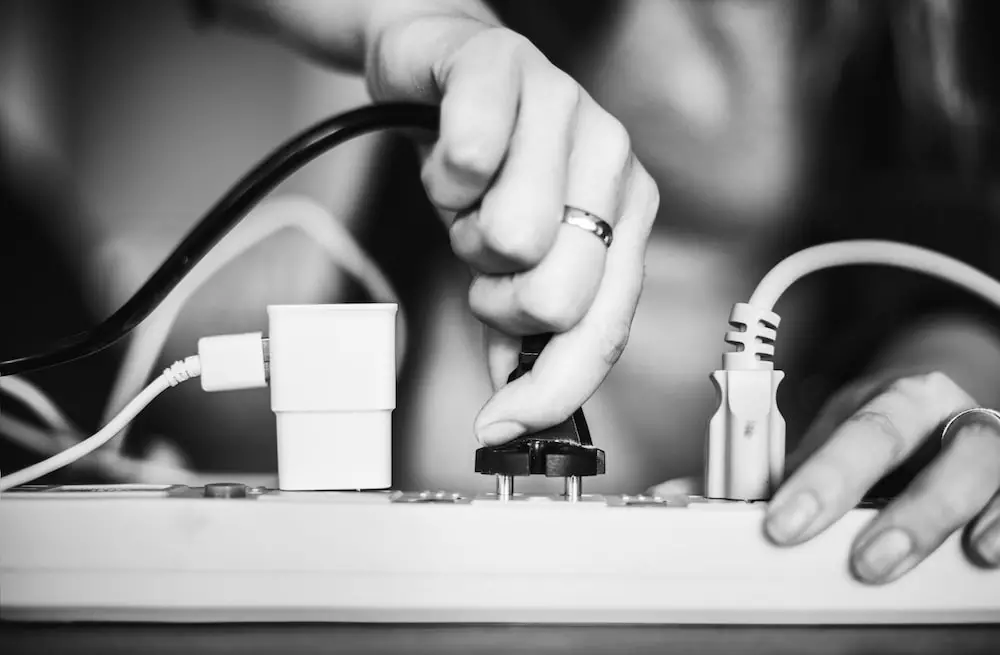Like with many other causes of damage, the answer to the question of whether power surges are covered by homeowners insurance is not a simple yes or no. It depends on a number of different factors, making power surges covered in some instances and not covered in others.
- Power surges are covered under some forms of homeowners insurance and not under others.
- The cause of the power surge is important in determining if the home insurance policy will cover the damage or not.
- Equipment breakdown coverage can be added to ensure that your property is covered no matter the cause of the power surge.
What is a power surge?
First, let’s take a look at exactly what is a power surge. A power surge is a sudden spike in the number of electrical volts that is significantly in excess of the home’s normal flow of electricity. Much damage can be caused by a power surge whether that be damage to appliances or electronics that are plugged into an outlet, damage to the outlets themselves, or an electrical fire that can cause extensive damage to the home.

Common causes of power surges
A few common causes of power surges include:
- Lightning strikes
- Transmission line issues
- Maintenance work or switching that the power company is doing
- A blown fuse
- Old or faulty wiring in the home
When is a power surge covered under home insurance?
The cause of a power surge is an important factor in deciding whether the damage is covered under a homeowners policy or not. Lightning and man-made power surges (not caused by the homeowner) are covered under every form of homeowners insurance.
Lightning strikes are a common cause of electrical fires. The electrical strike of the lightning may cause the power in one’s home to surge, resulting in damage or destruction of the home and/ or one’s personal belongings.
Man-made power surges may occur when the power company is completing maintenance work on the home itself. If this is determined to be the cause, many types of home insurance policies will cover the damage.
It is important to note the coverage limit in each section of the policy. When it comes to dwelling coverage some policies cover the structure of the home up to the actual cash value of the home and some cover the structure of the home up to the replacement cost value of the home. This can potentially lead to vastly different amounts that are reimbursed for the same amount of damage caused by a power surge. Actual cash value limits will typically be lower than the replacement cost limit because the actual cash value basis will take into account depreciation in the value of the dwelling over time, whereas the replacement cost basis will not.
There are major differences in coverage limit to one’s personal belongings as well. Some policies have higher limits for personal property coverage than others and again, some policies are on a replacement cost basis and some are on an actual cash value basis. Make sure to read through your policy and talk with your insurance agent to determine what coverage you have and the limits for each section.

When is a power surge not covered under homeowners insurance?
There are many instances when a power surge is not covered under the various forms of homeowners insurance. These instances include, but aren’t limited to:
- General negligence leads to the surge
- The home has been vacant for a long period of time
- Maintenance issues in the home
- Maintenance work being done by the power company somewhere other than at the home
Check your insurance policy to determine what perils are covered and what perils are excluded from the policy. Some homeowners policies are more encompassing than others. There are named peril policies and open peril policies. Named peril policies will name the specific perils that are covered and all others will be excluded. On the flip side, the open peril policy will explicitly exclude some perils and all others are covered under the policy. This is an important distinction.
How can I make sure my belongings are covered in the event of a power surge?
Many insurance providers offer what’s called equipment breakdown coverage. This endorsement that can be added to a home insurance policy provides the homeowner with protection for any appliances or electronics that may be damaged by a power surge. Generally, appliances like dishwashers or electronics like a tv may not be covered under a standard policy. The equipment breakdown endorsement will encompass all appliances and electronics.
Equipment breakdown coverage also provides protection to the homeowner for causes of a power surge that may not be covered under the standard policy. This can include causes like:
- Poor installation
- Mechanical breakdown
- Pressure system breakdown

How can I prevent power surges?
While it is important to know whether one is covered in the case of a power surge or not under their homeowner’s policy, it is also important for a homeowner to take preventative measures to ensure that a power surge doesn’t occur in the first place. There are a few things a homeowner can do to reduce the likelihood of a power surge in their home. These include:
- Installing point-of-use surge protection devices. These can help divert any excess voltage into the ground instead of into appliances or electronics plugged into the home
- Regularly checking wiring and outlets. It is good to ensure that wiring is in good order, not exposed, and outlets are working properly
- Use surge protectors and surge-protected outlets. Surge protector strips and outlets help divert excess voltage that may flow.
- Utilize a lightning protection system in the home. These systems can be installed in a home to prevent lightning strikes on the home
Summary
There are some cases where a power surge is covered under a home insurance policy and some cases where a surge is not covered. Check your policy to understand what you are covered for and to what extent you are covered, so you are not left in a bind when disaster strikes.

